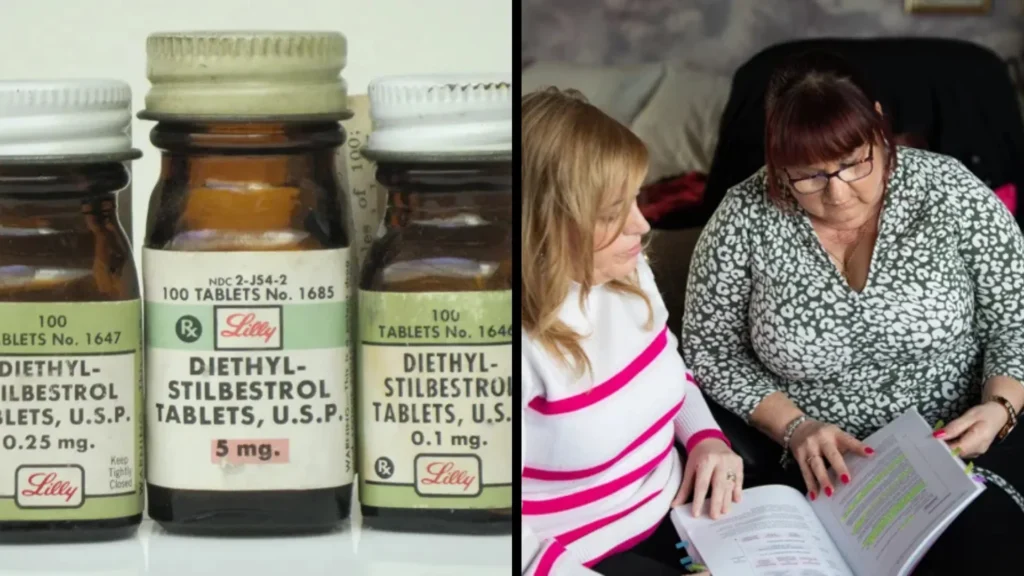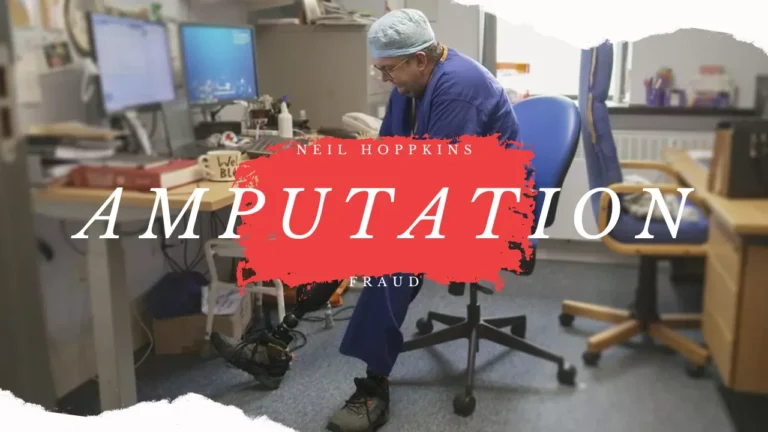If you thought the UK drug system was airtight when it comes to maternal health, buckle up. This is the real-life story of diethylstilbestrol better known as DES, a synthetic hormone once hailed as a medical miracle but later exposed as a cancer-causing disaster.
Diethylstilbestrol was meant to protect pregnancies and stop lactation, but what it really delivered was trauma that echoes across three generations of British women. Even worse, it was given for years after it was “banned”, shocking, right? Let’s break down the data-driven facts you need to know.

1. DES Was Prescribed on the NHS for 40 Years
First introduced in 1939, DES was widely prescribed in the UK to prevent miscarriages and suppress lactation. Over four decades, an estimated 300,000 women were given this drug as part of standard NHS maternity care [1].
By the early 1970s, medical authorities globally began raising red flags. The US banned Diethylstilbestrol in 1971 for pregnancy use. The UK claimed to have “advised” a withdrawal in 1973, but hold on, the prescriptions didn’t actually stop.
2. DES Was Still Prescribed After the UK Claimed It Was Banned
Despite a supposed advisory to stop Diethylstilbestrol use in 1973, UK doctors kept prescribing it until at least 1978–1980 [1]. That means tens of thousands of women took the drug after the world already knew it caused severe health risks.
Even worse, the UK’s own health watchdog (MHRA) couldn’t even locate the advisory letter they said was issued [1]. If that’s not a red flag about pharmaceutical regulation, we don’t know what is.
3. DES Caused a 30% Increase in Breast Cancer for Mothers
Let’s talk numbers: women who took Diethylstilbestrol during pregnancy experienced an estimated 30% increased risk of breast cancer later in life [1]. That’s not a small bump, it’s a statistically significant, preventable rise in one of the UK’s most common cancers.
These women weren’t just misled. They were medically betrayed.
4. “DES Daughters” Faced Deadly Cancers and Infertility
Now, meet the second generation victims: the daughters of DES-prescribed mothers. These women, unknowingly exposed to Diethylstilbestrol in utero, are referred to as “DES Daughters.”
They face a much higher risk of developing rare cancers, such as clear-cell carcinoma of the vagina and cervix [2]. Others report:
- Uterine malformations
- Infertility
- Recurrent miscarriages
- More than 30 invasive procedures by midlife [2]
Imagine being punished for something your mother didn’t even know could harm you 😔.
5. There’s Still No National DES Registry in the UK
Despite the decades of damage, there’s still no national screening program or registry for DES-exposed individuals in the UK. Other countries like France and the US already run dedicated monitoring systems.
Meanwhile, Diethylstilbestrol-exposed women in the UK are being denied compensation and appropriate medical follow-up [1]. If this isn’t a systemic health failure, what is?
6. Safer Modern Alternatives Exist—And You Should Know Them
Let’s get one thing clear: there are better, safer options available today for the issues Diethylstilbestrol was originally used to treat.
✅ For miscarriage prevention:
- Progesterone supplementation reduces the risk of preterm birth in women with short cervix [3].
- Low-dose aspirin + heparin is the standard for women with known clotting issues or antiphospholipid syndrome [4].
✅ For lactation suppression:
- Non-hormonal methods like breast binding and analgesics are now first-line.
- In rare cases, oxytocin nasal spray or short-course estrogen therapy is used under close medical guidance [5].
7. What You Can Do If You’re DES-Exposed
If you or your mother was prescribed Diethylstilbestrol, especially between 1939 and 1980, you should alert your GP immediately. You may need:
- Annual mammograms
- Frequent pelvic exams
- Genetic and fertility counselling
Diethylstilbestrol exposure is a medical history that demands proactive care. You deserve to be seen, screened, and supported.
Source: You-tube (60 Minutes Australia)
Final Thoughts: DES Is the UK’s Forgotten Thalidomide
Remember the Thalidomide scandal? DES is its silent cousin, less known but equally devastating. The difference? Diethylstilbestrol’s horror show is still unfolding in real time.
It’s time we brought Diethylstilbestrol out of the shadows. Whether you’re a DES daughter, mother, or simply a concerned citizen. This is your call to awareness.
This isn’t just a history lesson. It’s a wake-up call. ⚠️
References
- ITV News. Drug linked to cancer given to mothers nearly a decade after UK ‘ban’. 2025 Jul 14. Available from: https://www.itv.com/news/2025-07-14/drug-linked-to-cancer-given-to-mothers-nearly-decade-after-ban-itv-news-finds
- ITV News. Women to launch legal action over pregnancy drug linked to cancer. 2025 Apr 9. Available from: https://www.itv.com/news/2025-04-09/women-to-launch-legal-action-over-pregnancy-drug-linked-to-cancer
- Cochrane Database of Systematic Reviews. Progestogens for preventing miscarriage: a network meta‐analysis. Available from: https://www.cochranelibrary.com/cdsr/doi/10.1002/14651858.CD013792.pub2/full
- European Society of Human Reproduction and Embryology. Guideline on recurrent pregnancy loss. Available from: https://www.eshre.eu/Guidelines-and-Legal/Guidelines/Recurrent-pregnancy-loss
- NICE. Postnatal care overview and lactation suppression. Available from: https://www.nice.org.uk/guidance/ng194/evidence/k-information-for-lactation-suppression-pdf-326764485974



